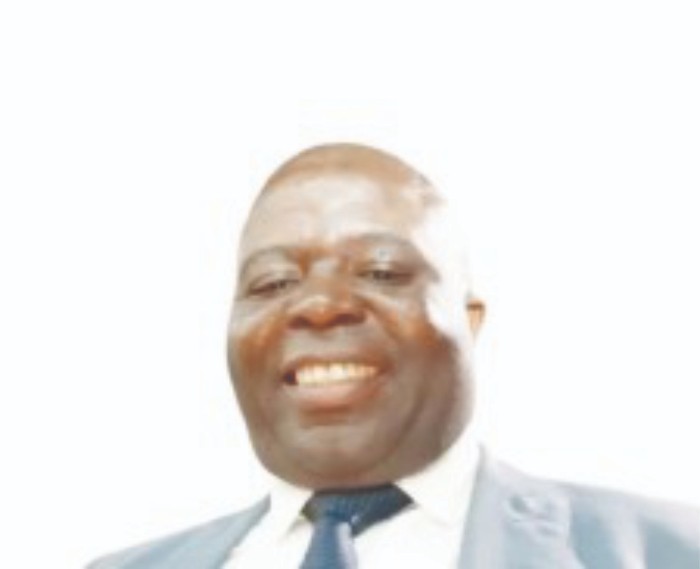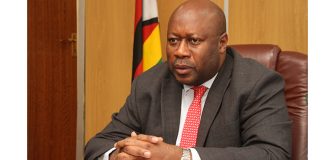Allow diaspora vote: Mudenda
Share

SPEAKER of the National Assembly Jacob Mudenda says the Constitution should be amended to allow people in the diaspora to vote, becoming the first senior official in the ruling Zanu PF party to push that agenda.
“Amendments to the Electoral Act should clearly specify the procedures and mechanisms for registration and voting for citizens in the diaspora,” said Mudenda while addressing legislators and other stakeholders at a workshop on the Electoral Amendment Bill, which was sponsored by the Southern African Parliamentary Support Trust and the Zimbabwe Election Support Network (Zesn) in Kariba yesterday.
Mudenda also said political parties and candidates who perpetrated electoral violence should be disqualified through amendments to the Electoral Act, which should empower the Zimbabwe Electoral Commission (Zec) to censure errant political parties and politicians.
He also pointed out that the future of the country’s elections depended on the role political parties played in promoting peaceful and credible elections by sending the right signals and urging their supporters to shun electoral violence.
“The regulatory body (Zec) can play a role through robust political voter education. However, ultimately the conduct of political parties themselves will determine a positive outcome because they wield an enormous influence on their supporters. Currently, there are no enforcement provisions on the code of conduct and the political parties continue to violate the code with impunity,” Mudenda said.
“Zec should be empowered through the Electoral Act to censure, or even disqualify political parties or candidates that act with impunity during the electoral processes. There is need to amend the Constitution to encapsulate the diaspora vote.”
He further noted that another area of concern was protection of the secrecy of the ballot and mechanisms to ensure reduction of assisted voters.
“Another observation I make on the proposed Electoral Bill is that it must comply with sections 160 and 161 of the Constitution, regarding the delimitation of electoral boundaries. The provision of the voters roll in searchable and analysable format is commendable. While this provision enhances transparency of the voters roll, and it is welcome, caution has to be exercised to ensure a balance between the right to access and the right to privacy of the information contained in the voters roll.
“It is suggested that amendment to the law could include hashing of some fields like identity number, date of birth, and the voter’s address which should lead to the generation of scanned copies from the printed copy. The suggestion is that the scanned copies should be availed only to contesting parties and candidates and not individuals, observers, candidates or organisations. Relatedly, the closure of the voters roll should have reasonable timelines which should be provided for in the Electoral Law,” Mudenda said.
The Speaker said the Electoral Act should include time limits for adjudication of pre-election disputes at the electoral courts.
“It is alleged that despite the fact that all election disputes are considered as urgent, there was a sizeable number of pre-election cases that were set down for hearing with significant delays and judgments that were not rendered before the election day. This may dent the integrity of the electoral process,” he noted.
“On the withdrawal of contesting candidates, it is submitted that the law should provide for the timeframe regarding the withdrawal in relation to parliamentary and local authority elections. However, the law is silent in regard to the parliamentary and local authority candidature. Furthermore, the electoral law should define the scope of who qualifies for postal voting in a more elastic manner.”
While the country should adopt best electoral practices from other countries, Zimbabwe should, however, not be a copycat, but fashion its own laws, Mudenda added.
Meanwhile, Zesn has revealed that about 83,52% of Zimbabweans are ignorant of the constituency delimitation exercise because Electoral Act provisions do not allow citizen’s participation.
In a report on delimitation findings last week, Zesn said information on delimitation was pivotal to ensure transparency ahead of the 2023 polls.
Section 161 of the Constitution stipulates that electoral boundaries should be delimited once every 10 years soon after a population census.
“From the field research, a majority (83,52%) of citizens does not know about the delimitation process. Of those aware of the delimitation, slightly above a quarter (25,89%) are aware of when delimitation occurs, nearly a third (29,70%) have knowledge of the legal framework on delimitation and 38,32% have knowledge of the authority responsible for delimitation. This points to a need to raise awareness on the provisions of elections (including delimitation), in the Constitution and Electoral Act,” the Zesn report read.
Political analyst Rejoice Ngwenya said: “In principle, delimitation is a highly technical process, albeit constitutional. Zimbabweans have very little trust in Zec since it is considered a partisan institution. This means everything that Zec does will always attract ridicule.”
He said people suspected that the delimitation exercise gave Zec an opportunity to reduce the constituencies in areas where the opposition is dominant.NewsDay.












